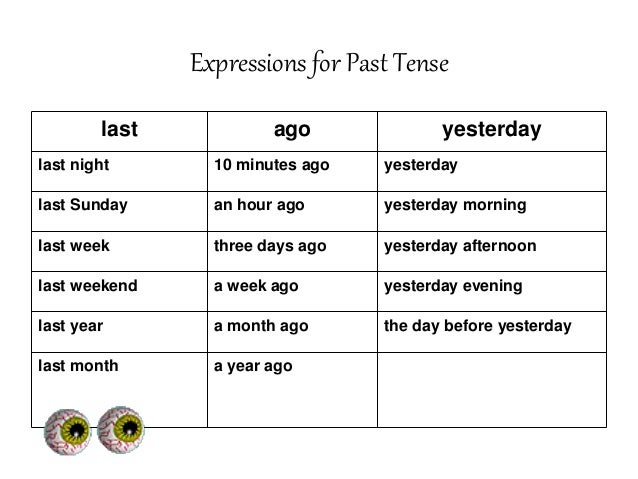

I had just finished my breakfast when Zach knocked on the door.Here are examples of sentences using the past perfect tense with regular and irregular verbs: Here are some examples of irregular verbs: For these verbs, there are no general rules regarding their past participles and you will simply need to learn them or look them up in our amazing dictionary. However, there are many irregular verbs whose past participles do not follow this rule. For example, the past participle of learn is learnt and the past participle of leap is leapt. Some verbs also use a – t variant, where the past participle ends with -t instead of -ed. For example, the past participle of watch is watched. For regular verbs, the past participle is a form of the verb that ends in -ed or -d. The past perfect tense is formed by using the word had followed by the past participle of the verb. We could have avoided this mess if you had just told the truth.If my dad had asked for directions, we wouldn’t have gotten lost.If I had studied harder, I’d have passed this test.These sentences typically use the word if. We also often use the past perfect tense to express conditional statements. The “someone” can even be yourself as in I thought I had fed the hamsters already, but I guess I was wrong. They claimed the cat had broken the vase.Nick told me that Marta had visited him this morning.The following sentences give examples of the past perfect tense used this way: However, the context of the sentence implies that the teenagers visited the store before I did or before I arrived at the store.Īnother common reason that we use the past perfect tense is when stating information that was said or reported by someone. In this sentence, the action described with the past perfect tense isn’t being compared to another past action that is specifically mentioned in the sentence. With a quick glance, I could tell that the teenagers had visited the store.Sometimes, the event that an action or state is being compared to isn’t always explicitly stated. She didn’t eat any of the stew because she had already eaten a big lunch.Īll of these sentences use different constructions, but in all three the clause that uses the past perfect tense describes an action that happened earlier in time than the clause that uses the simple past tense.When we found our dog, he had gotten stuck in a fence.I had caught ten fish before my dad caught one.You can see examples of this in the following sentences: One of the main reasons that we use the past perfect tense, also called the pluperfect tense, is to indicate that a past action or state happened before another past action or state. There’s a lot more to say about the simple past tense than you might think.

In the case of past perfect tense, we often refer to an action/state that was totally completed before another one.
GIVE PAST TENSE AND PAST PARTICIPLE HOW TO
If we break apart the name of this verb tense, we can see it is telling us how to use it: Both of these actions happened in the past, but one of them happened before the other. For example, the sentence Daniel had left by the time Erica got to his house uses the past perfect tense to say that Daniel left his house before Erica arrived. In the case of past perfect tense, it tells us that an event happened in the past before another event in the past. The tense of the verb, generally speaking, tells you when in time an action or state happens. When it comes to English verbs, we use many different verb tenses in our sentences. When we want to express actions or states of being we use words called verbs. What do you think of this little story? It was pretty interesting, but did you also catch that used a neat bit of grammar called the past perfect tense? On the news later that night, a newscaster said that the tiger’s handler had caught him before anyone got hurt. Before an influencer could take a selfie with the tiger, a troupe of clowns had chased it down the street.

A woman nearby told him that the tiger had escaped from the circus. A man had finished his jog around the block when he saw a tiger stroll down the sidewalk.


 0 kommentar(er)
0 kommentar(er)
